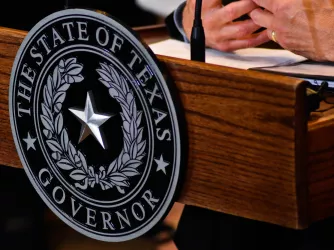Table of Contents
Dartmouth, What Are You Doing?
Last year, FIRE lauded Dartmouth College for repealing its speech code, and we were very pleased with the election of two more Dartmouth trustees who support free speech—Peter Robinson and Todd Zywicki. Robinson and Zywicki’s campaigns came in the wake of a similar insurgent candidacy on the part of T.J. Rodgers, who got himself elected trustee in 2004 on a free-speech platform. All three “free speech trustees” had been petition candidates—that is, they were not the endorsed candidates of the Dartmouth Alumni Council and had to garner 500 signatures in order to appear on the ballot. They won by attracting a national following among those interested in reforming higher education.
But now, it seems that Dartmouth is backsliding, specifically by attempting to make it as difficult as possible for other friends of liberty to follow in the footsteps of Rodgers, Robinson, and Zywicki.
Joe Malchow, a Dartmouth undergraduate who writes dartblog.com, is covering the doings of the college’s Alumni Governance Task Force (AGTF). The AGTF is currently writing a new constitution to govern things like—you guessed it—trustee elections, and it shouldn’t be surprising to anyone who follows universities that the new constitution specifically targets the main avenue through which reformers have recently had success. Here’s how Malchow summarizes the proposed “reforms”:
Potential petition trustee candidates themselves face the wild-eyed demand that they identify their intentions and submit all of their petitions before the Nominating Committee chooses its slate of candidates, a concept that ignores the truth of the petition provision, which is that it is a way for alumni to react, or to rebel, against irresponsible or ineffective leadership. It is not the medium of a ‘petition party’ which must always oppose the ‘establishment party’. It is an in-case-of-emergency option which by its very nature is reactive. That this constitution demands that petitioners warn the anointed few before they pick the official slate speaks volumes about how the in-crowd sees the state of alumni affairs. Their window to collect signatures is now a slimmed thirty days. The due date of the petitions is now arbitrarily determined, rather than codified.
“Wild-eyed,” indeed. The whole point of candidacies like those of the “free speech trustees” is to defeat unacceptable creatures of the establishment—the kind of folks who will allow immoral speech codes to stand. (If you don’t believe such persons exist, witness the fact that red-light speech codes exist at hundreds of colleges and universities. While they are rampant, trustees willing to fight them are not.) Dartmouth’s AGTF must know that it is unreasonable to expect outside candidates to somehow craft a grassroots movement that will yield the necessary number of petitioners without knowing whether the opposing candidate is any good. Making the AGTF’s intentions even clearer, this new document would require the petitions to be filed within 30 days, hardly a reasonable amount of time for a small school like Dartmouth with a widely-dispersed alumni community.
Apparently the new constitution is being plugged at a “public forum” in Boston tonight, and it appears headed for an alumni vote this summer.
FIRE has always stood for openness and freedom of speech. Introducing this new web of regulations into Dartmouth’s already overregulated trustee elections would be a blow to both—a direct shot across the bow of one of the most successful recent campaigns to bring liberty to our campuses. This attempted advance of the censors must be repelled.
Recent Articles
FIRE’s award-winning Newsdesk covers the free speech news you need to stay informed.

Gov. Greg Abbott’s order ‘hardening state government’ against China is dangerously hard to parse

Right, left, and in-between: Can we bring our differences to the table?

From the UK to Germany to Singapore: Police are watching what you post
